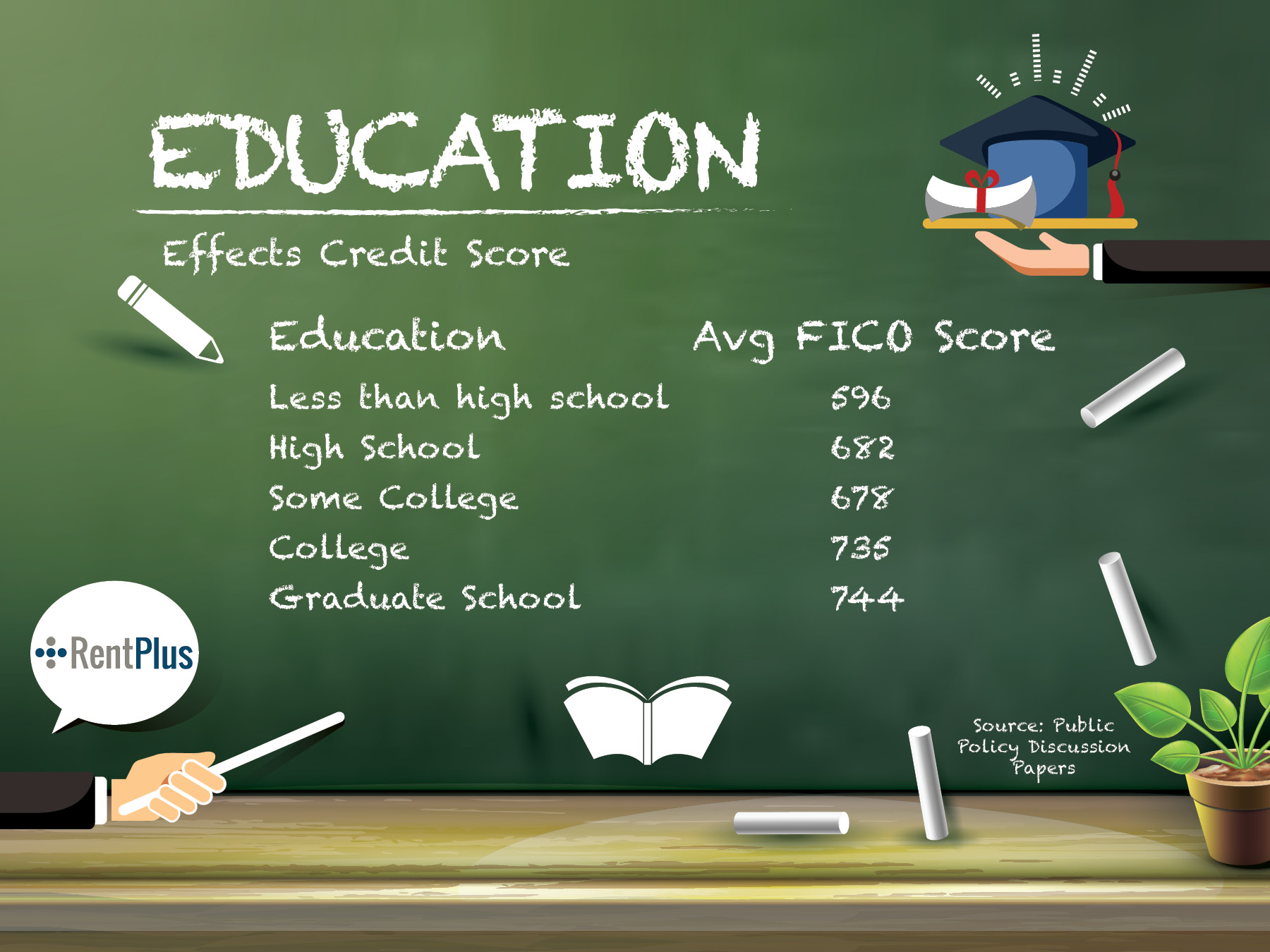How do you build your credit score? How do you even know where to begin? One of the best ways to improve your credit score is to learn more about it. Educate yourself about the ins and outs of credit scores. You can improve your credit score simply by researching what it takes to build it and then implementing what you’ve learned. To learn more about what makes up your credit score, check out our previous blog.
But did you know that your credit score number often correlates with your level of education? In fact, according to a recent research paper, Effects of Credit Scores on Consumer Payment Choice, your FICO score increases with age, education, and income.
So, by gaining more education, like a college degree, you could be taking the right steps to gain a higher credit score and improve your financial situation as well. In a recent research paper called, Smart Money? The Effect of Education on Financial Outcomes, it states that “better educated individuals systematically exhibit behaviors that are associated with increased savings and better financial management: greater financial market participation, increased equity ownership, higher credit scores, fewer instances of negative investment earnings, less leverage when purchasing a house, less delinquency, and fewer instances of foreclosure.”
Education can give you the skills you may need to learn how to gain a higher credit score, set goals, and have the discipline to follow through and boost your financial situation. But how much education should you strive for?
According to the Smart Money? The Effect of Education on Financial Outcomes paper, “An additional year of schooling raises an individual’s credit score by 8 points (roughly 9% of a standard deviation) … One year of schooling reduces the probability of bankruptcy by 3.3 percentage points, from a base of 14.4%.”

The more schooling you can get, the better your credit score will likely be. Earning a college degree can help you achieve better career opportunities, communication skills, decision-making skills, and financial stability. To earn a college degree, you need to study, work hard, and maintain a disciplined educational lifestyle for a long period of time. Earning a degree can help you apply some of that discipline you learned in college to help you maintain the financial lifestyle you’ll need to build your credit score and create financial freedom.
Just like earning your college degree, building your credit score isn’t something that can happen overnight. It takes months, even years, of discipline and hard work to create a strong credit score.
One of the negative perceptions many people have about higher education is the need to obtain student loans to pay for it. Students often worry that taking out a loan could hurt their credit score and ruin their chances of obtaining a decent loan after college. However, the opposite is true. According to U.S. News, “Paying off student loans is an effective way (and often the only way) for young people to boost their credit scores. In other words, there is a silver lining to student debt.” Making regular, on-time payments towards your student loan can help credit bureaus see a long, healthy credit history.
That doesn’t have to be the only way for you as a college student to build your credit score, however. You can also build your credit score by asking your property management company to report your rent payments to the credit bureaus. This is currently a little-known secret in the renting community. However, if students will apply the research skills they’ve gained from obtaining a higher education, they’ll discover that reporting their rent payments to a credit bureau each month will improve their credit score immensely. Click on the link to learn more about RentPlus and how we can help build your credit score via rent payments.
When it comes to obtaining a high credit score, do your homework. Research the steps it’ll take to improve your score, and start working on it today. Apply that knowledge and work ethic you gained in college to help you gain a higher credit score and achieve financial freedom today.



